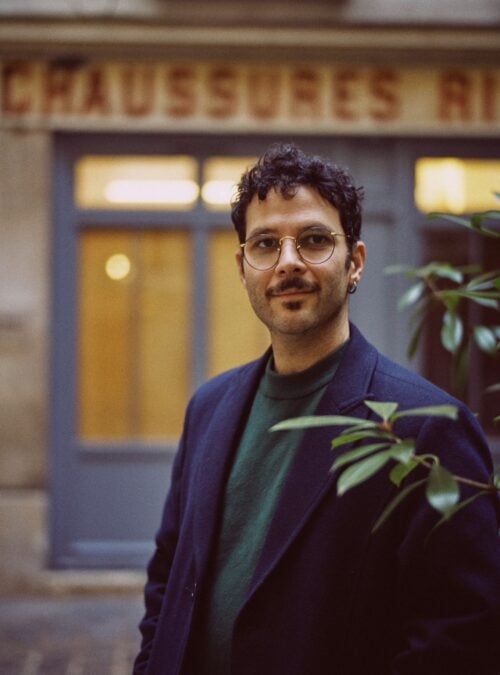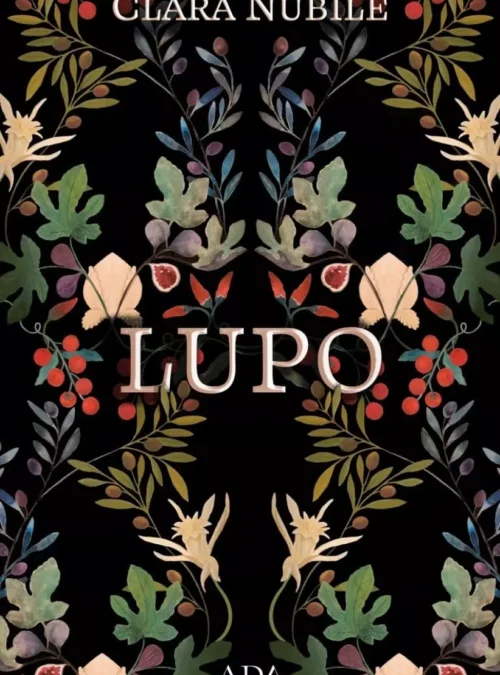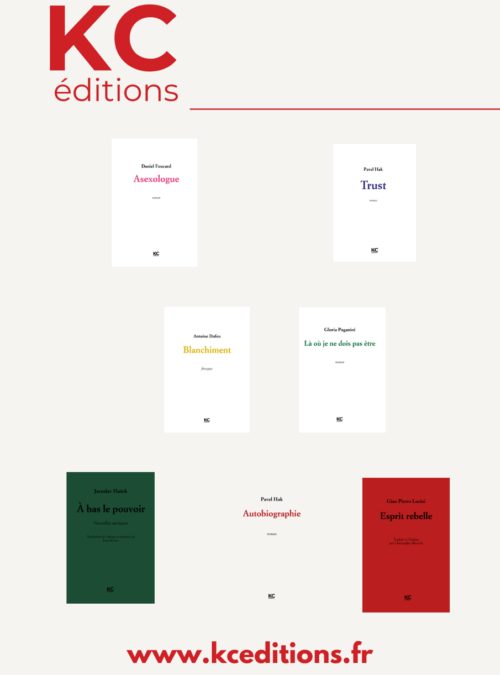Interview with Federica Manzon, editorial director of Guanda
Author: Laura Pugno

The new series of newitalianbooks interviews with editors and publishers of Italian publishing houses continues with Federica Manzon, editor-in-chief of Guanda and the recent winner, with her latest novel Alma (Feltrinelli), of the Campiello 2024 prize.
As usual, the question is:
How would you describe the identity of the Guanda publishing house to the readers of newitalianbooks abroad? What are its characteristics and strengths? Which bets, literary and otherwise, have worked best in Italy and possibly in other countries, and in your opinion, why?”
The Guanda publishing house was founded in 1932 and focused mainly on poetry: the collection created by Attilio Bertolucci includes the greatest poets from all over the world and the catalogue dedicated to Italian authors features the the protagonists of 20th-century Italian poetry: Mario Luzi, Milo De Angelis, Patrizia Valduga, Maurizio Cucchi, Dario Bellezza, etc. This tradition was then consolidated in the 1970s under the direction of Giovanni Raboni. And while the first decades of the 2000s saw poetry publications focusing almost exclusively on the international scene, in 2025 we are witnessing a return to the scouting of Italian voices thanks to the direction of Mario Santagostini, who intends to give space and visibility in particular to Italian authors of the millennial generation, especially those who already have a well-defined identity in the world of poetry and are now reaching the book of maturity (such as Marco Corsi, Alfonso Guida, Silvia Caratti, Alberto Pellegatta).
In the 1980s and 1990s, the publishing house opened its catalogue to, mainly foreign, fiction. The editorial line is distinguished by a taste for innovation and the anomalous, which is embodied in authors who write by rejecting all the rules of classical narration. This is the case of the novel by a young Scottish author who would quickly become a cult object for a whole generation, Irvine Welsh with his scandalous Trainspotting; or the cheerful British writer Nick Hornby; but also Almudena Grandes and her first transgressive work The Ages of Lulu; and the international bestseller by the Indian writer Arundhati Roy The God of Small Things. The tradition of successful debuts continued in 2002 when Guanda was the first publisher in the world to acquire the rights to the novel of a young beginner who would prove himself a few months later to be one of the most interesting voices in new American literature: Jonathan Safran Foer.
In recent years, the publishing house has enjoyed great success with novels that are often hybrids, capable of blending fiction with essays and autobiography. This is the case with the great ‘novels without fiction’ by Javier Cercas, or the successful autofiction of Manuel Vilas Ordesa, the Strega prize-winning novel La ragazza con la Leica (The girl with the Leica) (translated in many countries) in which Helena Janeczek paints a portrait of the photographer Gerda Taro through the documented and imagined gaze of the men and women who were close to her. The success of these novels is a response, in my opinion, to the search by many readers for a component of ‘truth’ in the pages, which leads them to prefer stories that come directly from history or from events in which the narrator coincides with the author themself and, in this identity, guarantees the supposed truth of the story (to the chagrin of the lying narrator of the 20th century).
This interest in history told in narrative and literary form was certainly one of the reasons for the great success of Fernando Aramburu’s novel Patria (Homeland).
With the evolution of cultural and editorial scenarios, Guanda continues exclusively focus on literary production; in the very recent past, the search for new voices on the international scene has been accompanied by that of new Italian authors. Among the voices that have worked best over the past year, we can mention the novel by the writer and philosopher Ilaria Gaspari La reputazione (The reputation) which has just been translated into Brazilian and will soon be published in French, and which explores the theme of slander and the fragility of our relationships; the success of Virdimura by Simona Lo Iacono, which tells the story of the world’s first female doctor; and the début of young author Marta Aidala who, with La strangera (The stranger), takes a feminine look at the mountain and the world that inhabits it (to be published in France next year). This focus on women writers was consolidated at the beginning of 2025 with the arrival at Guanda of an important voice on the Italian scene, widely translated abroad — Nadia Terranova, who, with Quello che so di te (What I know about you) focuses on the themes of memory and family heritage. These are all voices of authors who, each in their own way, assert a new sensitivity and freedom in the narration of history and the place of women in the present and, in doing so, trace for me an ideal line of dialogue with the female voices of international literature in recent years that have made their mark on the public and critics.
The idea of the publishing house is to build, with Italian publications, a counterweight that engages in dialogue with the big foreign names and can also contribute to the constitution of a literary community of authors concerned with finding new ways of addressing the issues that we feel are the most urgent in the present: This is the case, for example, with the novels to be published in 2025 by Nicola Cosentino and Ferdinando Cotugno, two prominent names in a new generation of intellectuals and writers, which take a hybrid narrative form to address the question of our lives in the era of the crisis of desire and the climate crisis (a theme also addressed in Bruno Arpaia‘s successful dystopian novel Qualcosa, là fuori (Something, out there) which, in 2016, anticipated the era of climate narratives and to which the author returns with a new novel Il mondo senza inverno (The world without winter) which will be published soon).
A recent area of exploration that has borne fruit is that of the noir, or ‘black’, genre, to which the ‘Guanda noir’ collection is devoted, and which sees the publication of novels with a strong contextual characterisation, where the focus is on the characters and the relationships between the protagonists and the places: as in the highly appreciated novels of Marco Vichi, who uses Florence and the surrounding hills as the backdrop to the investigations of his commissioner Bordelli, or the ferocious and sentimental Milan of the protagonists of Gianni Biondillo and Gian Andrea Cerone (a television series based on the novels of Commissioner Mandelli is being made), or the border town of Trieste, bustling with spies and international intrigue in the noir novel by Pietro Spirito (to be published soon in France). A more recent collection, but one that has become increasingly recognisable to readers and booksellers.










